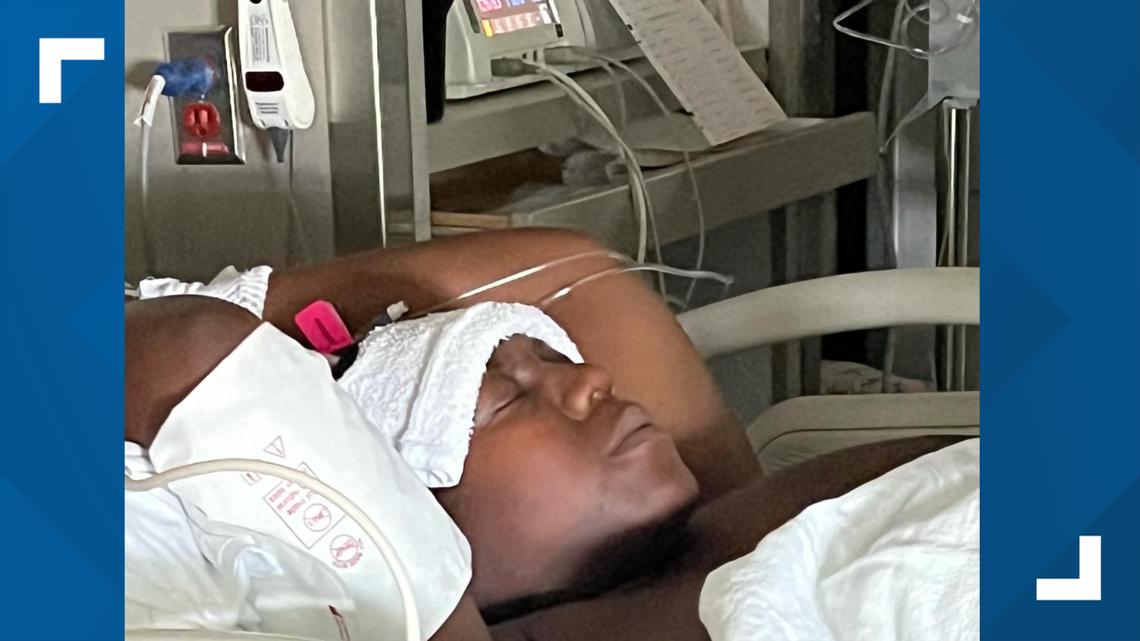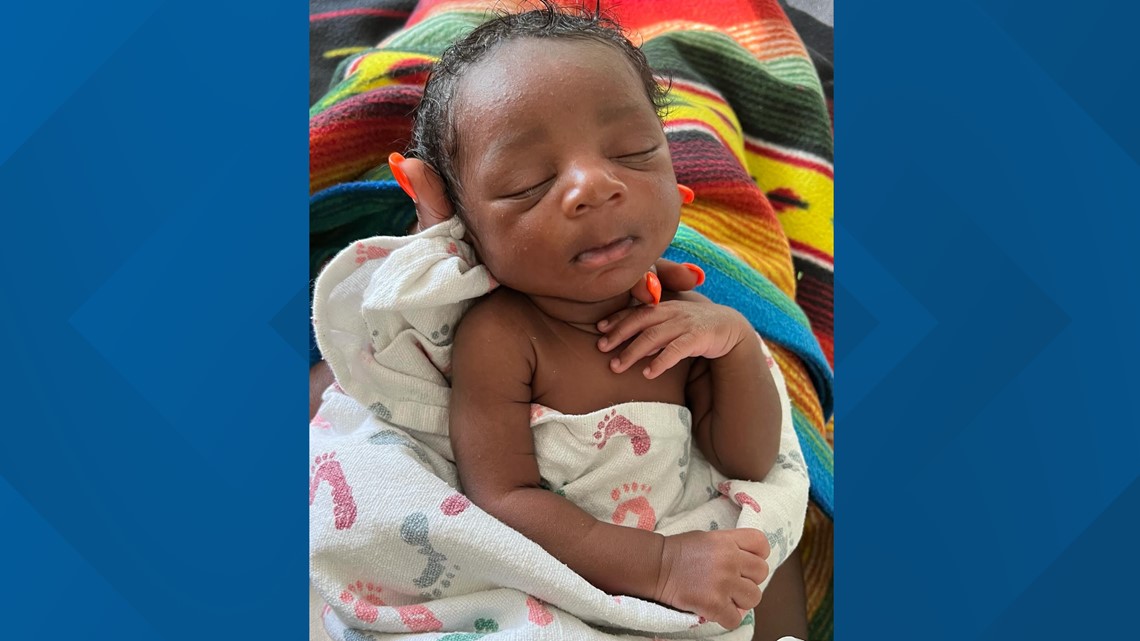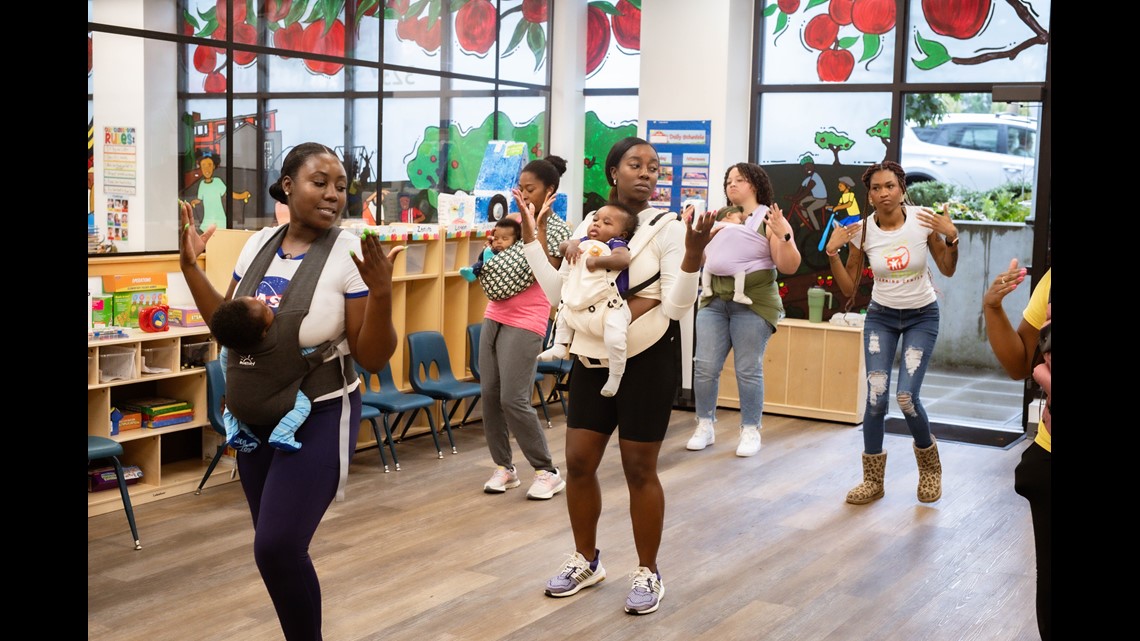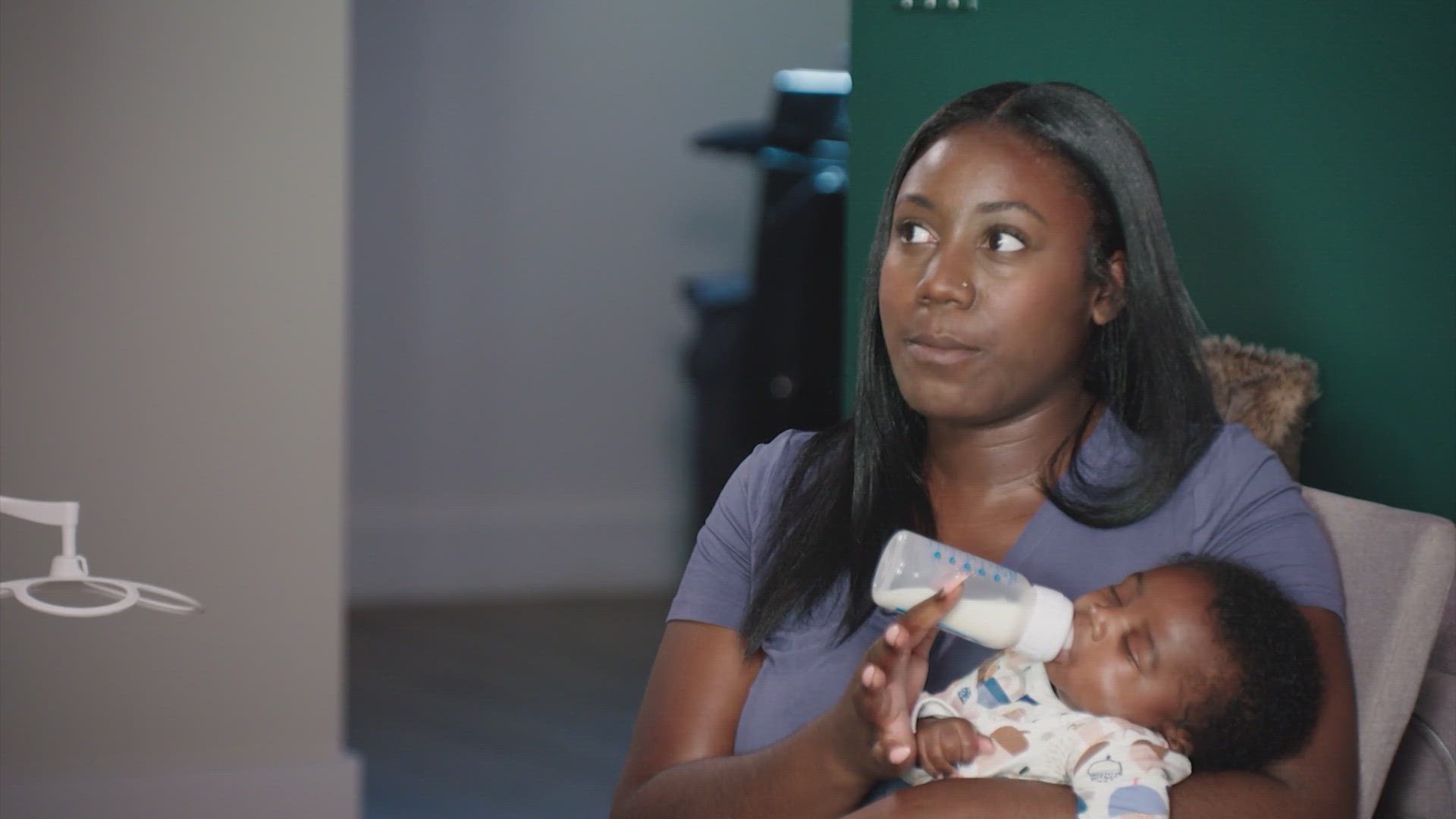SEATTLE — Healthcare disparities disproportionately affect communities of color.
For Black women, pregnancy can be a scary time. According to the Centers for Disease Control and Prevention, Black women are 2two to three times more likely to die during pregnancy and childbirth.
In July, our Facing Race team revealed how local moms were taking control of their birth stories to protect their bodies, births, and babies.
At that time, Keisha Credit was seven months pregnant and building a care team of color to ensure she had a peaceful birth.
“In labor, you're in a moment where it's very tense," Credit said. "You're in pain. You're screaming. You've got your partner that's trying to support you. I think trying to explain nuances that may be cultural or having to feel as if you're not able to be truly yourself because you might be in a room full of people that don't resemble you, or you feel may not be as empathetic to who you are. I think building that environment where it's just natural, it flows, you have familiarity with these people. To me, that seemed like the most opportune moment for me to bring a child into the world."
Going into labor


A few days before our July story aired, Credit went into labor. The hospital room was dimly lit with tea lights. Her doula, Damarria Davis, performed an aromatherapy blessing on the space. Calm meditating music played in the background.
“My doula met us at the hospital," Credit said. "Everything that we said that we wanted to do, she was able to implement, which was awesome. It was not easy. There was a lot of pushback.”
Credit said that pushback came about 50 hours into labor when the doctor was ready to deliver the baby.
“I said, ‘If I push, I think my body's already gone too far,'" Credit said. "I’m a little scared to push. I think I’m going to have a stroke or something like that. So, I said, 'No, I’m going to need to take a nap.'"
Credit's doula and her partner, Adama, advocated for that nap.
“They’re like, 'Okay, we can give you two hours, so you can sleep,'" Credit said. "But after that, we're going to need to get this rolling, because it's been too long since your waters broken. And if we wait any further, then we could get into some health concerns. So, I took a nap, and then I woke up and I was like, Alright, guys, I think I'm ready. Let's go.”
After 62 hours of labor, Serigne was born.


“There’s just a lot of intimidation in the medical field," Credit said. "Women don't feel empowered enough to say or to feel like they can actually have a voice and speak back. But with my doula, I was like, she got my back. We're good. I felt confident because if something was wrong, I trusted my doula enough to be like, hey shut up if I was pushing it too far. “
Preeclampsia


As the new parents prepared to take Serigne home, a frightening health scare for Credit came up as she was preparing to check out. The nurse revealed to her that her blood pressure was high.
“So, she explained to me this is something of pre-eclampsia," Credit said. "She explains what this is, and it was so emotional, because I had heard about it, but I never heard about it post having the actual baby."
Dr. Patricia Egwuatu is a family medicine physician and faculty attending at Kaiser Permanente.
Egwuatu said preeclampsia is typically diagnosed during pregnancy, but moms can still deal with pregnancy complications after giving birth.
“When you think about Preeclampsia, it's a combination of different symptoms," Egwuatu said. "You can have elevated blood pressure, hypertension, and you can also have protein spilling out into your urine, causing kidney damage. And then you could have gestational hypertension, which is hypertension in pregnancy after 20 weeks.”
According to the Preeclampsia Foundation, Black women are 60% more likely to develop the condition than white women.
"If we take a step back and look at like our nation, and we think about racism, and structural racism, and that bowl boils down to like the biological, the political, the social, and basically the social determinants of health," Egwuatu said. "So where an individual lives, they sleep, the air that they breathe, the food that they eat, the access to health care, all of those things can really impact an individual in terms of why they're more likely to get preeclampsia. When we think about why preeclampsia is more likely, those are like a lot of the scenarios, which is really unfortunate. And that is like what we talked about, like you know, how we address healthcare disparities. We need to get better access for black women to all of those things we talked about that, unfortunately, makes it really hard. That's a lot pressure on an individual to try to figure out how to fix all of those things.”
According to the March of Dimes, in the United States, preeclampsia affects between 5-8% of pregnancies and in most cases leads to preterm birth.
“The crazy thing is when I started talking about it on social media, the amount of moms that were like, 'Girl, literally, this happened to me, it was so scary,'' Credit said. "I had no idea. I didn't know what this was. They're like, how come we don't know this is moms that this is such a heavy thing.”
After staying five extra days in the hospital Credit, Adama and baby Serigne were finally able to go home.
“I needed to stay on high blood pressure medicine for I think three weeks after that," Credit said. "Then it kind of just self-regulated its way out. I did have to go to the ER one time again after I got out of the hospital. So, it was frustrating. But we got through it."
Bringing Moms together
"It's literally beautiful to watch a person become a person,” Credit said. “When we brought him home from the hospital, he was such a different baby, so I’m enjoying being a part of his growth and nurturing his growth.”
She talks about life as a new Mom on social media.
“Motherhood emotions, it's so real," Credit said. "It's like you - you can't control the different thoughts that you have. And you don't know why you're feeling that way. Some days, you're like, everything's great, but I don't feel great."
Now Credit is leading a new movement, a dance class called "Baby Carriers and Friends." She created the space for Moms to bond and heal.


“It gets your brain not focused on just the baby," said Aspen Strothers, a mother of four who attended the class. "You can just be with your baby, which is the fun aspect and just be able to do something and not think, are they growing properly? Are they eating properly? Is their diaper wet?"
“To have a whole room full of people. I was just like, he we party and we dancing and it's just up from here," Credit said. "The more the merrier. If this many people need to come to this space, we’re all gonna heal together, then that's more energy.”
Postpartum can come in different forms for moms. But Egwuatu said having a support system is necessary.
“I am a new aunt and my niece is about to be two, so when I think about having a child and having a village, it's so important because you have people that can check in with you ask you if you're okay,” Egwuatu said. “And it's okay to not be okay. You're more likely to have postpartum depression. So being a new mom, it's like anxiety and depression. How do you take care of yourself? How do you take care of your baby? So, having many people that show up for you that's not friends or family or doula is so important, because they can be really intuitive, like, Hey, you're not okay. Let's check in about these things. Let's bring it to your physician. And let's talk about how we make you better.”
Kaiser Permanente has a resource for pregnancy and maternity here.

